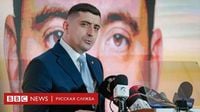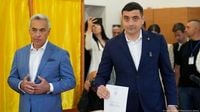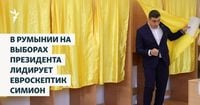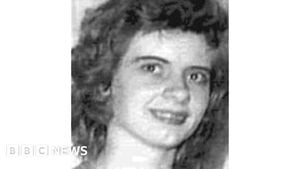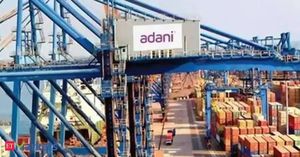On May 4, 2025, the first round of the Romanian presidential elections concluded with nationalist and Trump supporter George Simion securing a significant 41% of the votes. This election marks a critical juncture for Romania, as Simion's rise could potentially reshape the country's political landscape and its relations within NATO and the European Union.
Simion, leader of the far-right "Alliance for the Union of Romanians" (AUR), will face off against 55-year-old Bucharest Mayor Nicușor Dan, a centrist candidate who garnered 21% of the votes. The results, confirmed by the Central Election Bureau, indicate that Simion's political stance resonates strongly with a substantial segment of the Romanian electorate, particularly amid ongoing geopolitical tensions.
The elections were particularly noteworthy as they represent a second attempt for Romania to elect a president. The previous elections, held in November 2024, were annulled by the Constitutional Court due to alleged foreign interference, specifically citing involvement from Russia and manipulation through social media platforms like TikTok. Călin Georgescu, the pro-Russian candidate who had initially led the polls, was barred from participating in the repeat elections.
Simion's campaign has been characterized by his Euroscepticism and opposition to military aid for Ukraine, a stance that aligns him with a growing cohort of far-right leaders across Europe. He has expressed intentions to potentially reinstate Georgescu to power should he win, stating, "There are several ways in which, if the Romanian people want, Mr. Georgescu can take a leadership position, and we will use them." This declaration has raised alarms regarding Romania's future alignment within NATO, especially as the country plays a vital role in supporting Ukraine against Russian aggression.
In the first round, Simion triumphed in 36 out of 47 electoral districts and received 61% of the votes from the Romanian diaspora, a demographic that has historically been crucial in elections. His support has been bolstered by strong backing from Romanians in Western and Northern Europe, as well as from various countries in the Near East, Russia, Ukraine, and Belarus.
As the results were announced, Simion expressed gratitude towards his supporters, emphasizing that their trust would not be betrayed. He stated, "I want to sincerely thank everyone who decided to vote for me. It was an act of courage, trust, and solidarity. I assure them that their trust will not be betrayed." His victory not only reflects a shift in Romanian politics but also highlights the increasing acceptance of far-right ideologies in mainstream political discourse.
Simion's political rhetoric includes a strong emphasis on national sovereignty and a rejection of external influences, particularly from the European Union, which he has criticized for its handling of various issues, including immigration and economic policy. His party's platform advocates for a Romanian unification with Moldova, a position that has led to his ban from entering Moldova on multiple occasions.
The second round of the elections is set to take place on May 18, 2025, and will be closely watched by international observers. The outcome is expected to have significant implications for Romania's foreign policy and its role within NATO, especially as the country serves as a critical transit route for military supplies to Ukraine. Romania hosts American missile defense systems and several key NATO airbases, which patrol the airspace over Ukraine and Moldova.
Experts have voiced concerns about the potential ramifications of a Simion presidency. George Scutaru, a security expert from the New Strategy Center in Bucharest, warned, "Forget about any assistance to Ukraine if Simion becomes president. As the head of the National Security Council, the president can veto any decision and exerts a strong influence on security policy." This perspective underscores the anxiety surrounding Simion's electoral success and the implications it may have on Romania's commitments to its allies.
Simion's campaign has also tapped into public discontent regarding Romania's financial support for Ukrainian refugees, positioning himself as a voice for those who feel burdened by the influx of displaced individuals. Despite his criticisms of military assistance to Ukraine, he maintains a tough stance against Russia, labeling President Vladimir Putin a war criminal while opposing arms supplies to Ukraine.
The political landscape in Romania is evolving rapidly, and the upcoming second round of elections will determine whether the country moves towards a more nationalist and Eurosceptic direction under Simion or maintains a centrist approach with Dan, who has positioned himself as a pro-European candidate. The stakes are high, not just for Romania but for the broader stability of Eastern Europe.
As the political narrative unfolds, the implications of the elections will resonate beyond Romania's borders, influencing the dynamics of NATO and the European Union as they navigate the complexities of security and cooperation in an increasingly polarized world.
